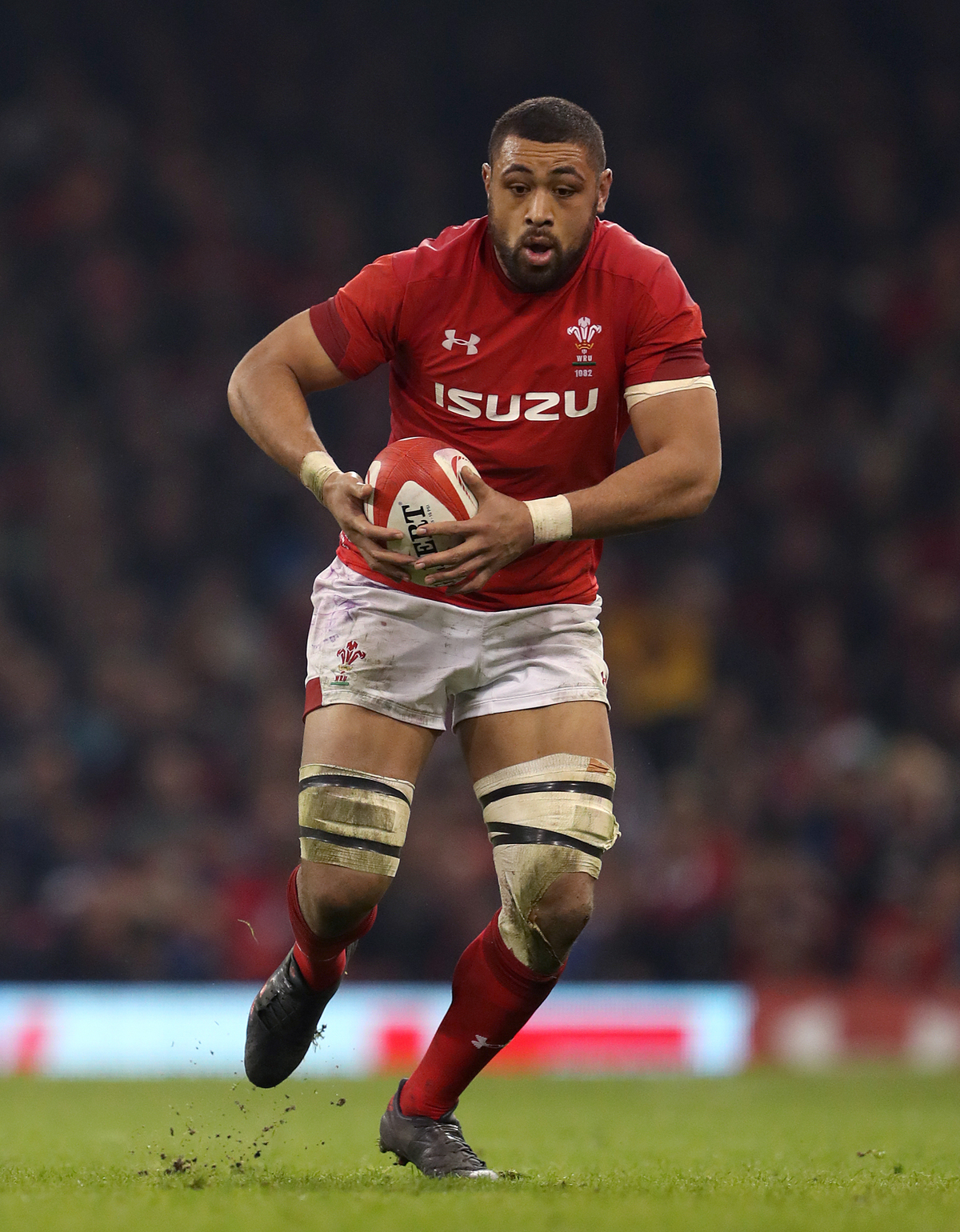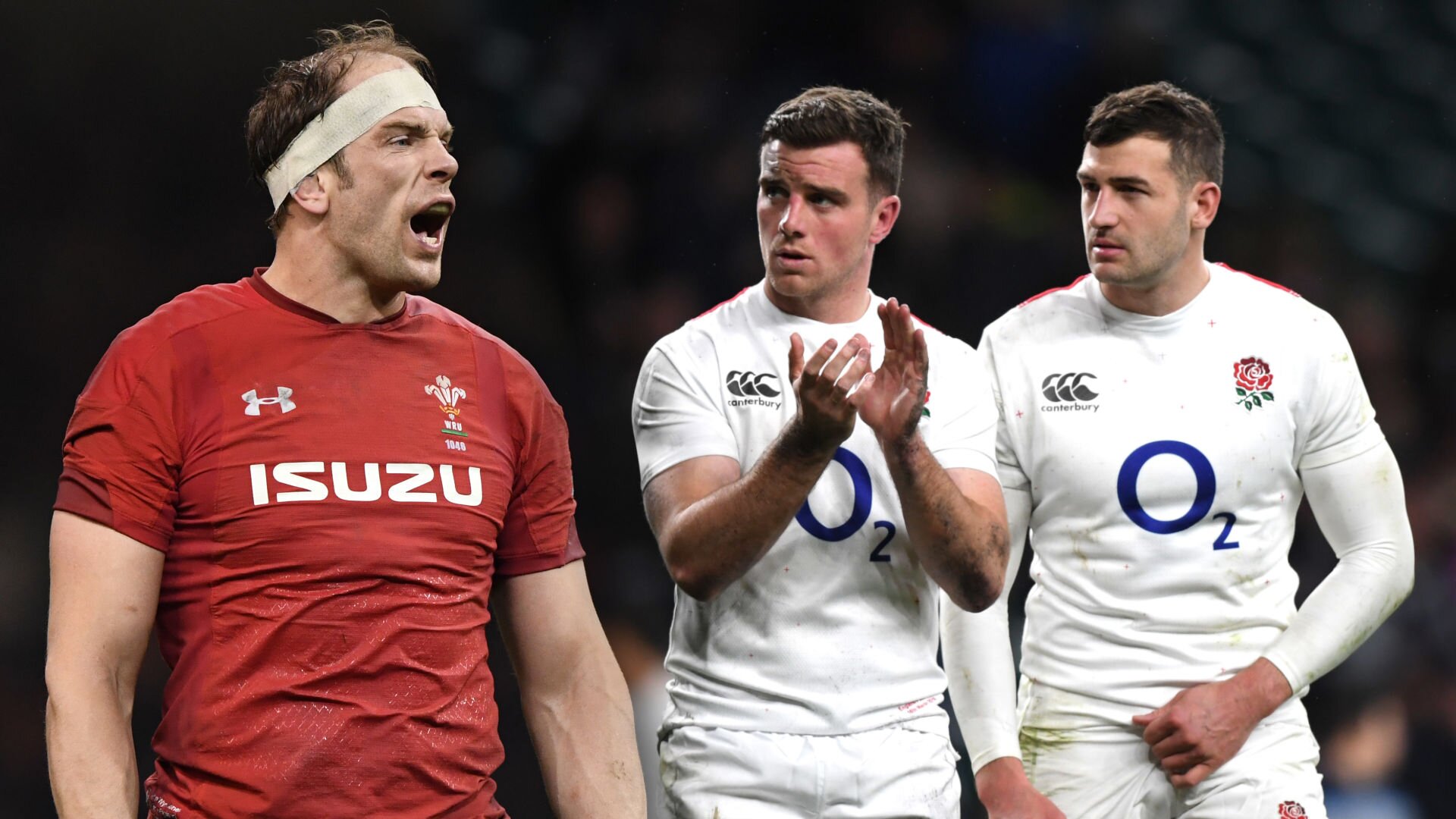What England and Wales want from game one in Twickenham

World Cup warm-up games are funny beasts.
It’s not just that they are friendlies because, technically, so are the summer tours and the autumn internationals. Those games, however, remain extremely competitive. Everyone concerned wants to win. Whereas, in the warm-ups, winning is not always quite as important.
Of course, for some teams, winning is still very important.
In this match, for instance, both England and Wales have a lot riding on a win – Wales are seeking to move up to first in the world rankings and England are looking to get back some momentum after a shaky end to their Six Nations campaign. And that’s on top of the long-standing rivalry between the teams.
But it isn’t the be all and end all in the same way. If England lost by one point to a late Dan Biggar penalty, it wouldn’t hit home like that pool game in 2015. Equally, if George Ford, Owen Farrell, and Eliot Daly team up for another set of perfect passes before scoring, it won’t crush Welsh hearts as it did in 2017. It’s just not the same.
There are plenty of things that do matter, however, and they differ for each side. Eddie Jones has said each of England’s four games “will have a purpose which we won’t be divulging”. Whatever those secret purposes are (and the twin selection of Tom Curry and (the now injured) Sam Underhill suggests Jones still wants to improve England’s breakdown operating), the first game also matters for squad selection.
England’s final selection opportunities
Jones has taken a markedly different approach than his predecessor to squad selection. He has suggested that only three places are undecided of his final 31-man squad, which he will announce on 12th August, with three warm-up games still remaining.
That would mean there aren’t many players with the opportunity to put their hand up for selection, making the matchday 23 fascinating. It seemed like the final three spots, injury permitting, were the second scrum-half, the third hooker, and the final back – would it be a bolter or a returnee from injury? However, it now looks like there are also positions in the back-five and the centres up for grabs.

The dilemma over hooker has gone on throughout Jones’ tenure. Whatever his weaknesses on the field, Dylan Hartley would surely have gone along for his off-field leadership, had he been fit enough to play when called on. After all, Jones continued to pick him long after Jamie George’s form suggested he deserved to start and the England coach has more than once highlighted leadership as a weakness of the side.
Hartley’s lack of fitness has now left Jack Singleton and Tom Dunn in a straight shoot-out for the third spot and it would appear Singleton has won, given he will presumably get time from the bench. Hooker might not be an area of selection confusion after all.
At loosehead it also seems simple. Joe Marler, recently returned from international retirement, looks to have edged out Ben Moon, who stepped up in the former’s absence, for the third spot, along with Mako Vunipola and Ellis Genge.
In the back-five, Charlie Ewels’ selection is interesting. It could mean Maro Itoje and Courtney Lawes are being considered as locks-cum-blindsides, as they so often have under Jones, now that Brad Shields is injured. That would leave a spot open for Ewels among the second rows.
However, it could also mean he is competing with Joe Launchbury for a spot. Or, it might mean he is being given some experience in case he is needed as injury cover. With Jones, it is always hard to tell.
A late injury means Lewis Ludlam starts on the blindside after Sam Underhill withdraws. Whether or not he will be making his case for selection or picking up experience presumably depends on how serious Underhill’s injury is.
Adding sparkle: the backs
Willi Heinz’s nomination as vice-captain in his debut game suggests he is definitely going to be in the plane and Ben Spencer will be either third choice or first reserve.
While Jones’ policy on scrum-halves has sometimes been perplexing, it is worth remembering that Ben Spencer plays alongside Owen Farrell and much of the first-choice England pack at Saracens so already has established relationships with many of the key players around him, should he be required (the same goes for the experienced Richard Wigglesworth).
Heinz, however, does not. The Gloucester 9 is not familiar with his international team-mates and came up through the New Zealand age-grade system rather than the English. The vice-captaincy suggests that Jones thinks his experience and leadership outweighs that and trusts the pre-RWC camp to get him up to speed on the rest.
Heinz backing up that faith with a strong performance would be a big win from the England camp’s perspective.
Piers Francis has been a regular in squads since his move to England, with Jones seemingly attracted to his versatility – he covers both 10 and 12 and would therefore seem to be a natural back-up if Farrell were to get injured. The recent axing of Ben Te’o from the training squad suggests Francis has a real chance here to show a creative option alongside Ford and the returning Jonathan Joseph.
Francis’ selection would certainly help with the logistics of creating a 31-man squad and allow Jones an 18/13 split between the forwards and backs.
Further back, the injury returnee Anthony Watson and potential bolter Ruaridh McConnochie will no longer have the chance to fight it out on the wings, with breakthrough star McConnochie also withdrawing through injury, replaced by Joe Cokanasiga. Jones has repeatedly expressed interest in a bolter player, citing the impact of New Zealand’s Nehe Milner-Skudder in 2015. McConnochie could be the player Jones is looking for, although without an international cap before the squad is announced, will Jones take the risk?
Resolving those final three spots in the 31-man squad is surely one of the main aims of this game for England.
The big mo’
Another not-so-secret aim for Jones is surely to regain the momentum that England looked to be developing through the autumn internationals and the start of the Six Nations, before Wales and then Scotland put up roadblocks.
The stunning ferocity and physicality with which England played against Ireland can’t be replicated every game and certainly not in a warm-up match. But England could do with a convincing win over their old rivals to make a statement that the last match between the two wasn’t the measure of them.
This experimental side suggests a win isn’t the biggest priority although the English players have been talking up the intensity they expect, with Daly saying, “it will be similar to a Six Nations game”. If England don’t win, it won’t be for lack of trying. If they do, it will be a huge statement.
Wales, on the other hand, have put out close to their strongest side, backed up by a strong bench. They are taking this game seriously. For years, trips to Twickenham were a ritual humiliation for Wales fans. Under Warren Gatland, that has changed, but he hasn’t beaten England under Jones at Twickenham. This team suggests that Gatland is taking momentum seriously as a consideration.

Pull out the “walking wounded” clichés
For many Wales fans, mention of the warm-up games triggers flashbacks to the last time around, when it seemed another key player would fall at any moment. The agony on Rhys Webb and Leigh Halfpenny’s faces as they realised they were being ruled out of the tournament was enough to make any fan question the validity of these fixtures.
Moreover, they are on a 14-game winning streak, second in the world, and have beaten their nemesis and pool rival Australia this season. It’s not hard to see why some Wales fans aren’t convinced of the necessity of these games, given the risk.
Injuries are a part of the current game, however cruel. That realisation is part of why teams like Fiji, Ireland, Scotland, and Wales have worked so hard to build depth in their squads. However, with Taulupe Faletau continuing his unfortunate streak of injuries and Ellis Jenkins looking unlikely to return in time, the absence of the phrases “walking wounded” or “injury crisis” would probably count as a win in the Wales camp, whatever their current strength in depth.

Even with the injuries to Faletau, there is competition in the back-row, which might be why Aaron Wainwright starts and Aaron Shingler is on the bench – those two are surely right in the mix for selection and may both travel to Japan.
The 41-man training squad Warren Gatland has assembled is probably the strongest of the modern era and there will undoubtedly be players left out who can count themselves unlucky. For the coaches, selection problems like this are a privilege. That said, having a few tricky decisions over the final places in the RWC squad resolved after the first warm-up match would certainly be a win for Wales.
Honing the attack
Wales fought their way to a Grand Slam earlier this year on the back of Shaun Edwards’ marvellous defensive coaching. That’s not the first time under Gatland that defence has been crucial to Welsh success. In fact, it’s been a consistent feature.
Points win titles, not style. World Cup finals are rarely the try-scoring festivals we were treated to last time – and while we all love the romance of a losing team attacking fabulously in a dying cause, we tend to love winning more (even Wales, with their nostalgia for the glory days of Barry John and JPR et al).
On their 14-win streak, a national record, Wales have found a number of different ways to win, whether it be delicate offloads from young forwards against Argentina, out-kicking Australia, playing like the BaaBaas against Tonga, coming back from the dead against France, soaking up pressure against Scotland and England, or catching Ireland cold. That versatility should serve them well in a world cup campaign.
On the other hand, Gatland has said he wants to take the opportunity of the extended pre-RWC training camps to work on Wales’ attack. Picking a side so close to the grand-slam winning group (only Rob Evans and Josh Navidi miss out here) suggests he is using this game to add their new attacking ideas to his first choice team.
In the Six Nations, Gareth Anscombe often sat back to direct play, running phases almost entirely through Gareth Davies. Given his natural attacking flair, it will be interesting to see if he is allowed to indulge his triple-threat of kicking, passing, and running in this game. Likewise, Davies is a proven attacking threat with his sniping and running game but has recently focused much more on supplying the forwards and making the first tackle in defence. Will Gatland unleash both his half-backs?
And, if Wales are going to throw more into attack, will we finally see the real George North stand up? Despite flashes, it’s been a long time since he was a constant threat to opposition defences. A few of his trademark surges through England’s line would be very welcome to Wales fans.
Ever the pragmatist, he won’t be happy watching his side sparkle in attack but still lose. But, if Wales can add an attacking string to their bow in the first warm-up match without compromising their defence, both the coaches and fans will take that as a win.


















































